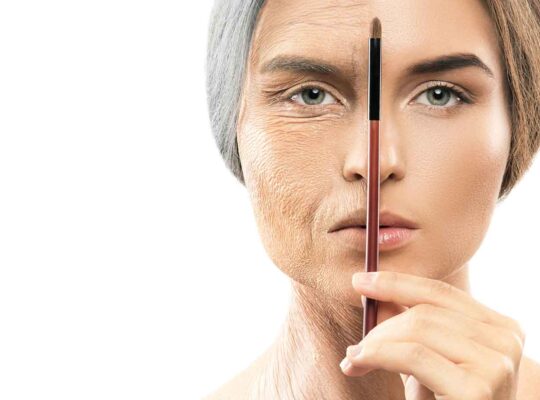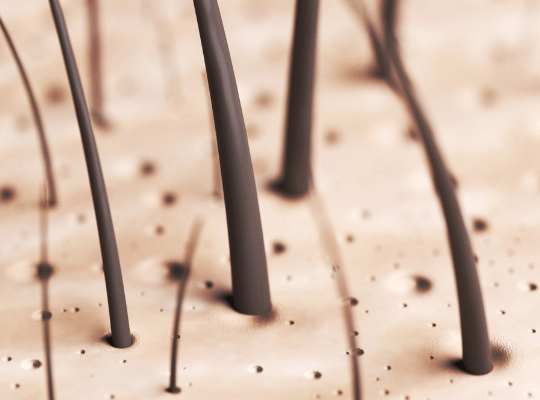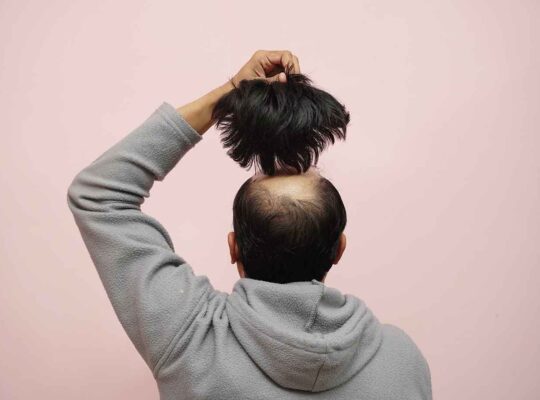Have you ever noticed your hair thinning or falling out and wondered why it’s happening? Hair loss can be a scary and emotional experience, especially for women. Our hair often feels like a big part of who we are, so losing it can be really tough on our self-esteem and daily life. Even though hair loss is usually associated with men, it’s quite common in women too. But don’t worry! By understanding why hair loss happens, how it’s diagnosed, and what treatments are available, you can take steps to manage it effectively. Let’s explore the main reasons women lose their hair, how doctors figure out the cause, and what you can do about it.
1. Causes of Hair Loss in Women
Genetic Factors: How Family History Can Affect Your Hair
One of the most common reasons women lose their hair is due to genetics, or what we call female pattern baldness (also known as androgenetic alopecia). This type of hair loss is hereditary, meaning it can be passed down from your parents. If your mom, dad, or other relatives had thinning hair, there’s a higher chance you might experience it too. Female pattern baldness usually shows up as thinning on the top of your head, and while women don’t typically go completely bald like men might, the thinning can still be noticeable and upsetting.
Medical Conditions: How Health Problems Can Lead to Hair Loss
Besides genetics, certain medical conditions can also cause hair loss in women. For example, thyroid problems can mess with your hair. The thyroid gland, which controls how your body uses energy, can cause your hair to thin if it’s not working properly. Another common cause is polycystic ovary syndrome (PCOS), a condition that affects a woman’s hormone levels. Women with PCOS often notice symptoms like irregular periods, acne, and yes, thinning hair or hair loss.
Here are some other health issues that can lead to hair loss:
- Alopecia areata: An autoimmune disease where your body mistakenly attacks your hair follicles, causing hair to fall out in patches.
- Lupus: Another autoimmune disease that can cause hair to thin out.
- Anemia: A lack of iron in your blood can also lead to hair loss, making your hair weak and more likely to fall out.
Lifestyle and Environmental Factors: How Your Daily Life Affects Your Hair
Your lifestyle can also have a big impact on your hair. Stress, for example, is a major factor that can cause hair to fall out. When you’re stressed, your body can go into survival mode and stop focusing on things like hair growth.
Diet is another key factor. If you’re not eating a balanced diet full of vitamins, minerals, and proteins, your hair might not get the nutrients it needs to stay strong. And lastly, how you treat your hair matters too. Frequent use of heat tools like curling irons or straighteners, tight hairstyles like ponytails or braids, and harsh chemical treatments can all damage your hair over time, leading to breakage and hair loss.
2. Diagnosing Hair Loss
Medical Evaluation: Why Seeing a Doctor Is Important
If you’re starting to notice more hair in your brush or thinning spots on your scalp, it’s really important to visit a doctor. They can perform a medical evaluation to figure out what’s causing your hair loss. During the visit, the doctor will ask about your medical history, any family history of hair loss, and any recent changes or stress you’ve experienced. They’ll also take a close look at your scalp to see if there are any patterns in the hair loss or signs of other issues.
Diagnostic Tests: How Doctors Find the Cause of Hair Loss
To get to the bottom of what’s causing your hair loss, doctors might recommend some tests:
| Test | What It Does |
|---|---|
| Blood Test | Checks for issues like thyroid problems, iron levels, or hormonal imbalances. |
| Scalp Biopsy | A small piece of your scalp is examined under a microscope to see if there’s any disease. |
| Pull Test | The doctor gently pulls a small section of hair to see how many hairs come out. |
These tests help doctors figure out the exact reason for your hair loss so they can recommend the right treatment.
3. Treatment Options
Medications: How Medicine Can Help Regrow Hair
There are several medications that can help with hair loss in women:
- Minoxidil: This is one of the most common treatments. You apply it directly to your scalp, and it helps improve blood flow to your hair follicles, encouraging hair to grow back. You can get it over the counter at most drugstores.
- Anti-androgens: These are medications that block male hormones (androgens) that can cause hair loss in women. Spironolactone is a popular anti-androgen that doctors often prescribe.
- Finasteride: Usually used for men, some doctors prescribe this for postmenopausal women. It works by lowering levels of a hormone called DHT, which is linked to hair loss.
Non-Medical Treatments: Other Ways to Treat Hair Loss
If you’d rather not use medication or if it hasn’t worked for you, there are non-medical treatments available:
- Laser Therapy: This treatment uses low-level lasers to stimulate hair growth. You can do it at home with special devices or at a clinic.
- Hair Transplants: This is a surgical option where doctors move hair from one part of your scalp to another. It’s usually considered when other treatments haven’t worked.
Lifestyle Modifications: Natural Ways to Support Hair Growth
In addition to medical treatments, making some lifestyle changes can help your hair grow:
- Eat Well: Make sure your diet includes plenty of vitamins and minerals like iron, zinc, and biotin, which are important for hair health.
- Manage Stress: Find ways to lower your stress levels, such as practicing yoga, meditating, or exercising regularly. Less stress means less chance of stress-related hair loss.
Comparison of Hair Loss Treatments
| Treatment Type | Description | Pros | Cons |
|---|---|---|---|
| Minoxidil | Topical solution for stimulating hair growth | Widely available, effective for some | May cause scalp irritation, requires continuous use |
| Anti-androgens | Medications to block androgen effects | Can be effective for hormonal hair loss | Potential side effects, requires prescription |
| Laser Therapy | Low-level laser devices to promote hair growth | Non-invasive, FDA-approved options | Requires regular sessions, variable results |
| Hair Transplant | Surgical procedure to redistribute hair follicles | Permanent solution, natural look | Expensive, requires surgery |
4. Coping with Hair Loss
Emotional Support: Dealing with the Emotional Side of Hair Loss
Losing your hair can be really tough emotionally. It’s important to find support to help you cope. Talking to a counselor or therapist can help you deal with feelings of sadness or anxiety. Joining a support group, where you can meet others who understand what you’re going through, can also be very comforting.
Cosmetic Solutions: Looking Good and Feeling Better
If you’re worried about how your hair looks, there are cosmetic solutions that can help you feel more confident. Wigs and hairpieces can cover up thinning spots and make your hair look fuller. You can also use different styling techniques and products to add volume and make your hair appear thicker.
5. Prevention and Maintenance
Preventive Measures: How to Keep Your Hair Healthy
While not all causes of hair loss can be prevented, there are steps you can take to protect your hair and prevent further loss:
- Be Gentle: Avoid hairstyles that pull on your hair, like tight ponytails, and limit the use of heat tools and chemical treatments.
- Eat a Balanced Diet: Include foods rich in vitamins and minerals that support hair health.
- Manage Stress: Keep your stress levels in check through relaxation techniques, regular exercise, and enough sleep.
Long-Term Management: Taking Care of Your Hair Over Time
If you’ve experienced hair loss, it’s important to focus on long-term care. This means regularly checking in with your doctor, following your treatment plan, and making lifestyle changes that support healthy hair growth. With the right care, you can manage your hair loss and keep your hair as healthy as possible.
Conclusion
Hair loss in women is more common than you might think, and it can be caused by a variety of factors, from genetics and medical conditions to lifestyle choices. Understanding why it happens and how to treat it can help you take control of your hair health. If you’re dealing with hair loss, remember that you’re not alone, and there are many resources and treatments available to help you. Don’t hesitate to reach out to a healthcare provider for advice and support tailored to your needs. Your journey to healthier hair starts with understanding and taking the right steps today.
FAQs About Hair Loss in Women
- What are the most common reasons women lose their hair?
- The most common reasons include genetics (female pattern baldness), medical conditions like thyroid disorders and PCOS, and lifestyle factors such as stress and diet.
- Can stress cause permanent hair loss?
- Stress can lead to hair loss, but it’s usually temporary. However, ongoing stress might contribute to long-term hair thinning.
- Is female pattern baldness curable?
- While there’s no cure, treatments like minoxidil and lifestyle changes can help manage and slow down the hair loss.
- How do doctors find out why I’m losing hair?
- Doctors use tests like blood tests, scalp biopsies, and pull tests to figure out the cause of hair loss.
- Can what I eat really affect my hair?
- Yes! Eating a balanced diet with plenty of vitamins and minerals can help keep your hair strong and healthy.











